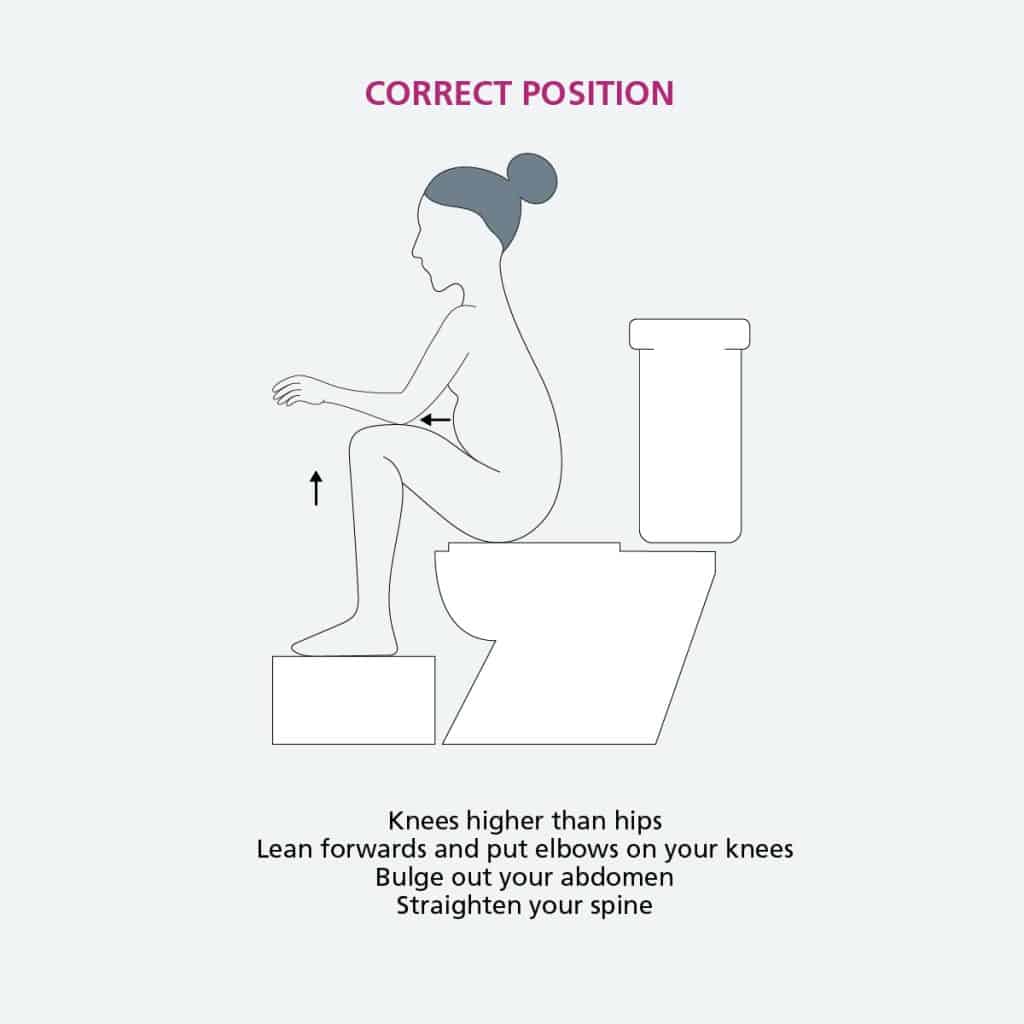Anal incontinence is the accidental loss of faeces (poo) or Flatus (wind).
Bowel urgency is the sudden need to open your bowels with little warning.
- 25% of pregnant women and people can suffer with anal incontinence.
- 10% of women and people have problems with anal incontinence after the birth of their baby.
The symptoms can be very distressing and can make it difficult to carry on with your normal routine or care for your baby. You do not have to put up with these symptoms and help is available from you GP, Midwife and Pelvic Health Physiotherapist.
Bowel urgency and anal incontinence can happen during pregnancy because the weight of your growing baby and womb can put pressure on your pelvic floor muscles. As these muscles stretch, they can weaken and not work so well.
It is the job of the pelvic floor muscles to:
- Support the bladder, uterus and bowel
- Prevent leakage of urine (wee), faeces (poo) and flatus (wind)
- Allow urine and faeces to pass when you are ready
If you have a vaginal birth the pelvic floor muscles have to stretch 1.5 to 3 times their normal length. After the birth the nerves that make the pelvic floor muscles work may not be doing this so well and mean that your muscles feel weak.
Self-help and advice
- Start by exercising your pelvic floor muscles 3 times a day during pregnancy and as soon as you feel comfortable after the birth of your baby.
- Follow good bowel health. Eat a varied diet of fresh fruit, vegetables and fibre and drink around 2 litres of water a day.
- If you have the sudden urge to poo, try to squeeze your pelvic floor muscles around your anus for 10 seconds. This can help control the urge and prevent leakage.
- Make sure you open your bowels fully, take your time and relax the pelvic floor muscles. Don’t strain whilst opening your bowels and if you are constipated see your pharmacist or GP.
How to avoid straining on the toilet
- Sit on the toilet with a stool under your feet
- Your knees should be higher than your hips
- Lean forward and put your elbows on your knees
- Buldge out your abdomen
- Straighten your spine
- Do not strain and keep your tummy muscles relaxed
It is helpful to take a slow breath in through your nose so that your stomach moves outwards, and your chest remains still and then exhale through pursed lips.
You may also find it useful to support your perineum when opening your bowels. Your perineum is the area between your back passage and your vagina.

Pelvic Floor Exercises
Pelvic floor exercises in pregnancy and for 3 months after the birth of your baby should be carried out 3 times a day.
If you have bowel problems, start pelvic floor exercises before seeing a pelvic health physiotherapist.
If the exercises don’t seem to be helping please see your GP or midwife for a referral or use the self-referral form.
Anal sphincter exercises (PDF) Tips for your bowel problem (PDF)Pelvic floor exercise video
This video is available with subtitles in other languages.